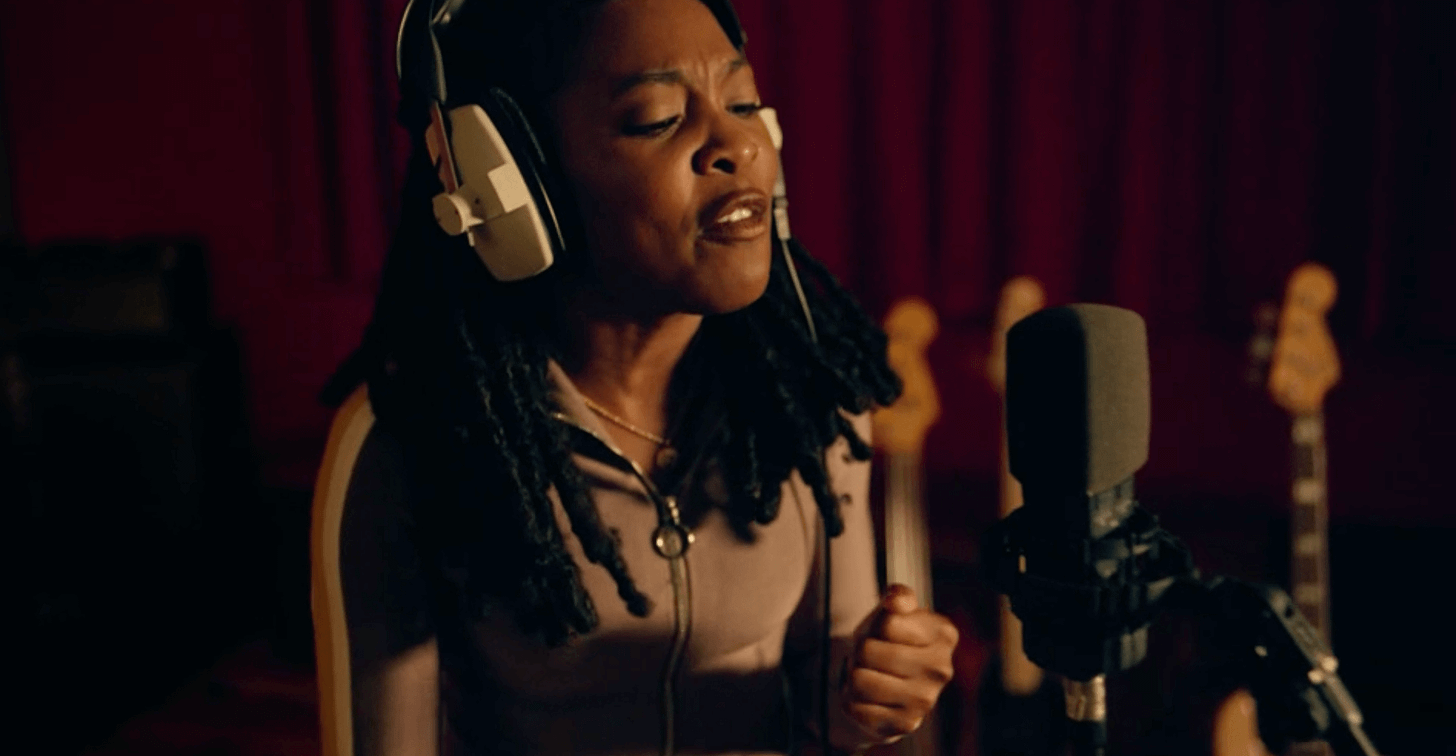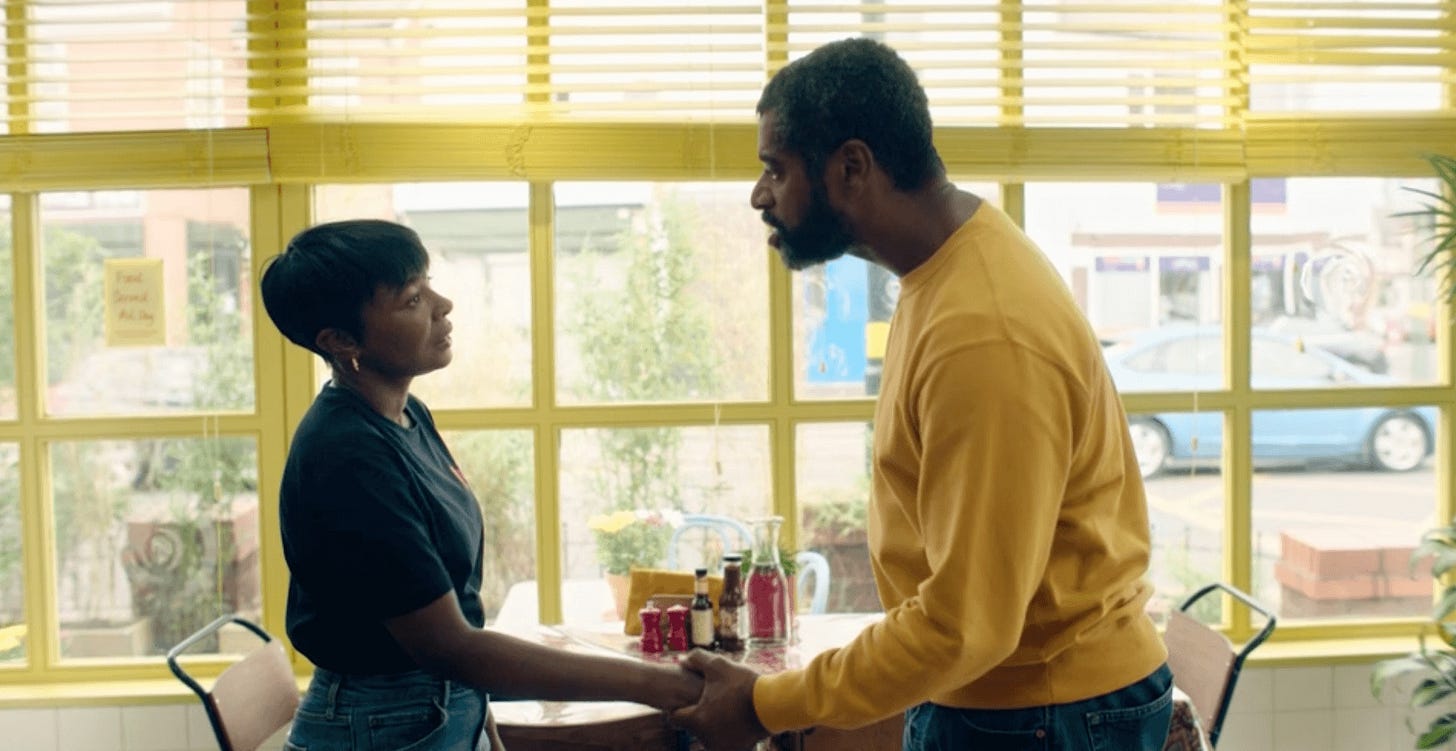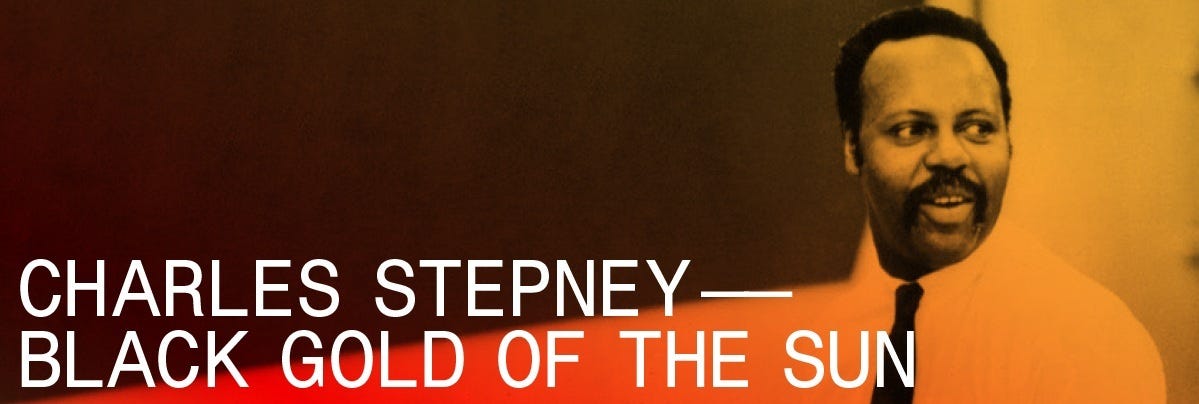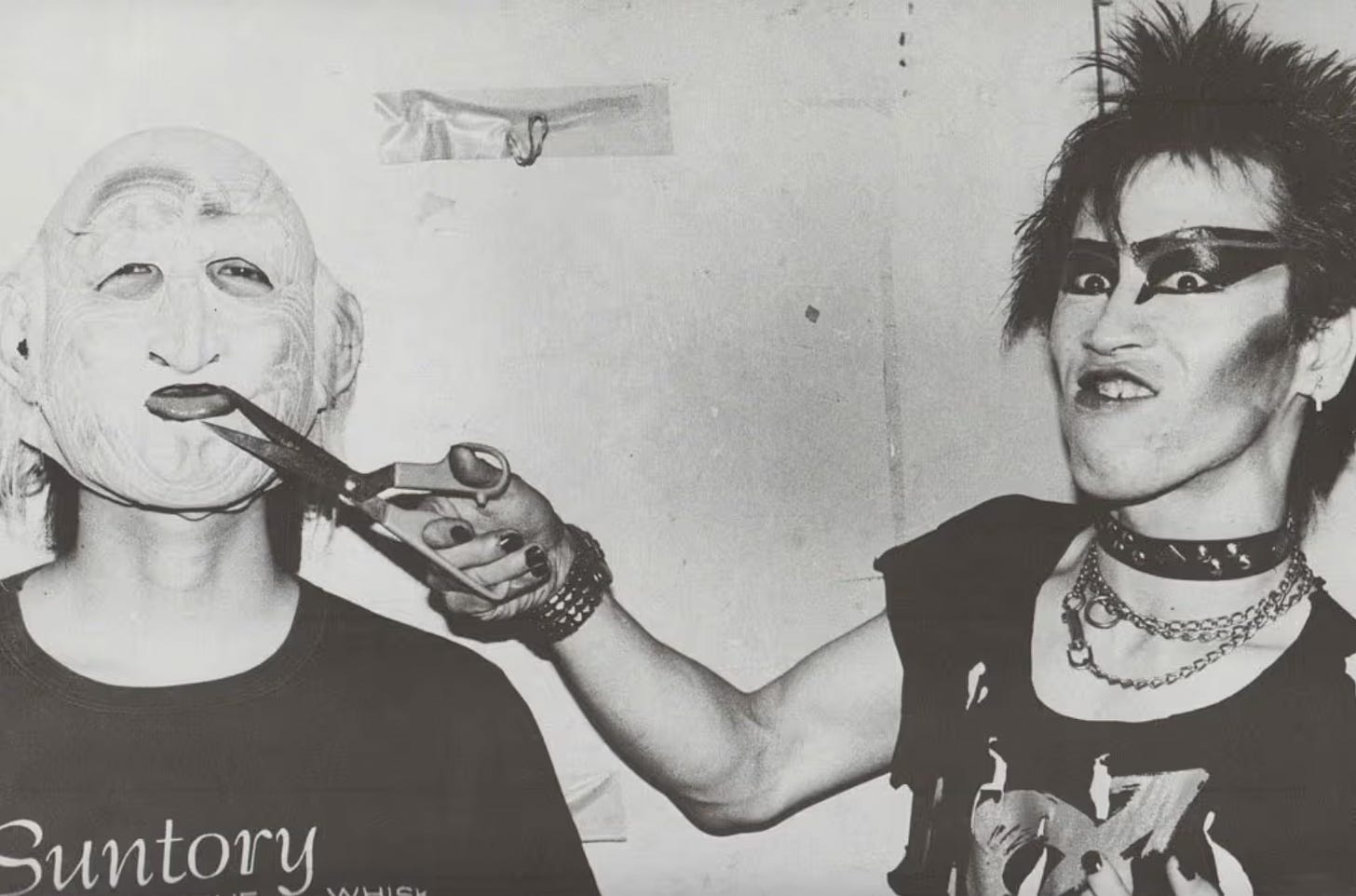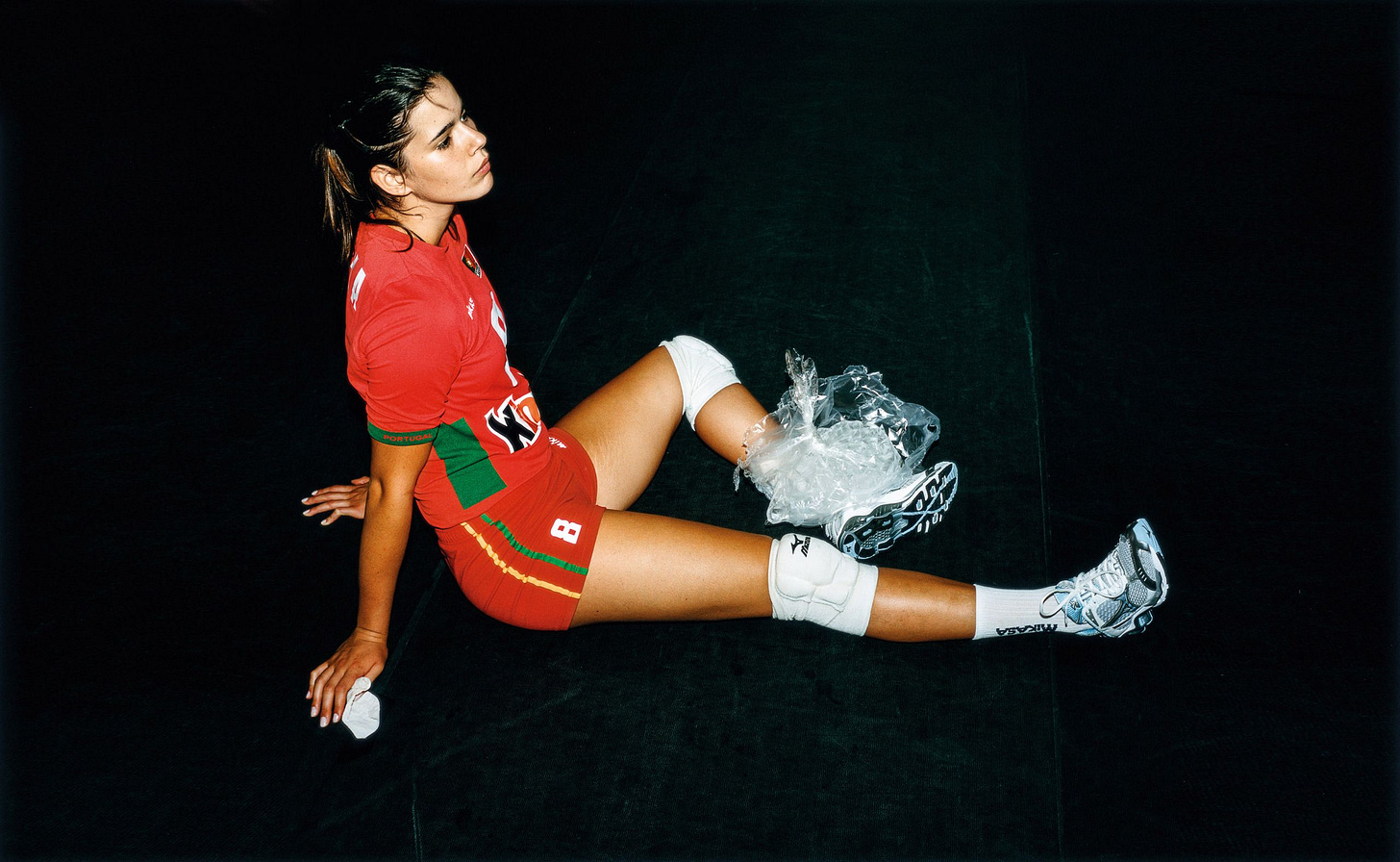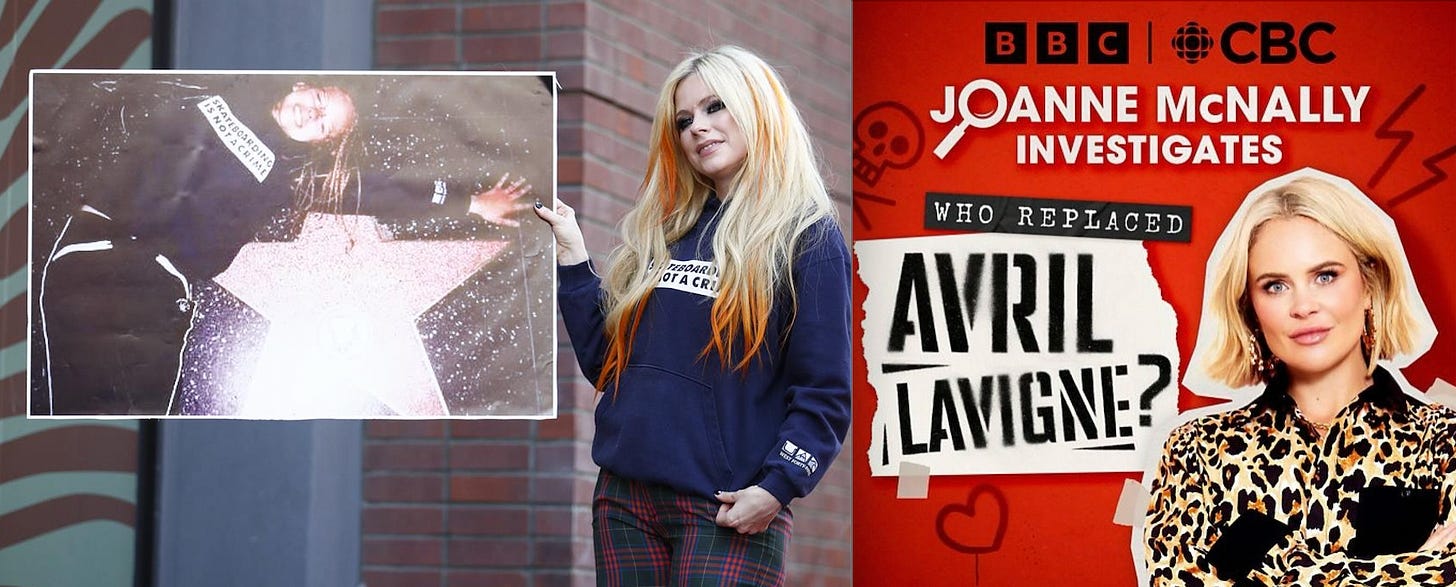Champion Sound
Candice Carty-Williams' Black British music drama will not return for a second series 😢 Let's rewind and consider what made it so absorbing from all angles.
In this issue:
Headliner Say hello and goodbye to a Champion TV show
Revival Listen to this documentary about genius Charles Stepney 🎂
Aftershow Paul Mescal on the pull in Islington, sports science is obsessed with men, Samantha Morton is an exemplary human being, subcultures aren’t what they used to be, time to stop being extremely online, Avril Lavigne is dead (maybe) and can I play you some music?
I can’t think of another TV show that looks or sounds like Champion. You might hear someone kickin’ a 16 on Top Boy. Feel the instant island warmth of likkle patois in the dialogue of a Small Axe special. Or find Nicole Lecky’s Mood and appreciate how financial insecurity and fear of failure are tightly bound up for aspiring musicians. How race and gender influence their chances of success.
But to take us into the heart of Lewisham borough (my home) and examine sibling rivalry in the music business over eight episodes through the lens of a fragmented British Caribbean family… That feels fresh, immersive and long overdue.
The tracks we hear were created especially for this Netflix/BBC series, A&R’ed by showrunner and writer Candice Carty-Williams and industry veteran Hattie Collins, with Catford OG and co-star Ray BLK also serving as a music executive alongside Ghetts. Shola Ama and Debbie have been penning songs as well, while music supervisor Cat Grieves also deserves credit.
As cast member Karl Collins says, this music isn’t background to the scenes, it is integral to the drama as it unfolds. How about Bosco Champion’s (Malcolm Kamulete) LIVE clash/rap battle with rival Bulla (Corey Weekes), recording his comeback track in a Birmingham bedroom – his “offloading” had me tingling. Or the electrifying scenes in Jamaica?
There is also care in how these characters are introduced and tested. We see that right from the opening scene as Bosco has a panic attack before his return to the stage after a stint in prison. How often do we get to see the veil lifted on artists, either documented or portrayed on TV, to reveal their vulnerability or fragility? Particularly men…
Carty-Williams has skin in the music game. She used to work at Pop Justice, was a Channel U obsessive, has interviewed Adele among many others, and can draw on the fraught experiences of countless friends and acquaintances in the industry.
Ray BLK is probably one of them. The hugely talented winner of the BBC Sound of 2017 should probably be an international superstar by now. (Just watch her harmonise as she fixes her make-up in episode one.) Her character Honey hustles for chances and gets messed around time and again, even by bestie Vita who uses their song to get her break. BLK told the Evening Standard:
“What I love [about Champion] is that it really does show the realities of being in the music industry. You want to believe that talent should be it. But not everybody gets it: it’s not a level playing field. I think a lot of people will feel attached to her [Honey’s] journey, because we’ve all been the underdog before.”
The one person who keeps Bosco on an even keel, while writing his hits, is Vita (Lewisham Youth Theatre graduate Déja J Bowens), his PA and obedient sister who longs to strike out on her own. Even after she gets her big break, we see father Beres (Ray Fearon) prioritising the career of his son and cash cow over the dreams of Vita.
And Bosco, under the dominant influence of his Champion brand-obsessed father, is in no rush to offer Vita his blessing or encouragement. But she can fetch him a tea or supply his next banger. Vita has been in his shadow for too long, put second as you can see in that early clip of them scuffling to So Solid Crew’s ‘21 Seconds’.
Beres is easy to dislike. All ego and selfishness with a dollop of manipulative charm as he struts around even the home that’s no longer his. Always quick to call the shots and rage if he doesn’t get what he wants. Beres is more interested in his vanity project of a radio station and sham of a record label than the welfare of his own children. He lives by the sacred (and mildly toxic) example of his father, which begins to haunt him as the show reaches its climax.
Viewers are drawn into not only his relationships with his children, but also the flickering flame of his connection to ex-wife Aria (a consistently brilliant Nadine Marshall). Once a promising artist herself and now languishing in the family restaurant after motherhood. I can still hear Aria berating that policeman, yelling “Don’t press up on me” in episode one’s explosive birthday party scene, which was improvised.
Anyone who’s read Queenie will know that Carty-Williams writes snappy dialogue you could easily eavesdrop on around South London, but a TV series is a slightly different proposition. Not least because it involves dozens of people scrutinising every line, as she told The Face.
Thankfully, the author and showrunner managed to bring the same authenticity, nuance and urgency to the Champion script (while also working on a Queenie adaptation, by the way 😮💨). That’s what makes the exchanges so engrossing, and the complex dynamic between characters always compelling.
There is conflict everywhere, which is by design as the writer explained to Televisual.
“When we were doing the writers’ room – which included Isis Davis (Killing Eve), Edem Wornoo, Emma Dennis-Edwards (Consent) and Ameir Brown (A Thousand Blows) – there was one point in the final week where I said we needed to keep a score system. That was the way I made sure every character had their fights and everyone had their wins, and their losses.”
For instance, how does Aria’s experience in the music industry, and the vestiges of a patriarchal society, impact her attitude to the futures of her children? An intriguing sub-plot in the series is her relationship with Lennox (Karl Collins), a dependable partner and surrogate father who feels the cold shoulder once too often. It seems Aria is unable to express what she wants or needs. Is that because she’s rarely been asked?
Carty-Williams is interested in the genesis and evolution of things, from attitudes and expectations to music and other aspects of culture. Her powers of observation and inquisition – asking how did we get here? – have made Champion expansive and resonant in myriad ways.
Vita is the shooting star of this story, struggling to exert control in her chaotic new life and Bowens deploys an array of facial expressions to convey her character’s swings between elation and dismay. She is attracted to Memet (Kerim Hassan), Bosco’s childhood friend and DJ, then begins a smothering relationship with producer Laurent (Francis Lovehall), which ups the tension in this tangled web of characters.
We do get a few pantomime villains like slimy record boss Phil (Fergus Rees) but even guys like buzz-obsessed manager Mark (Tom Forbes) – who is engaged to Bosco’s ex Chantelle (Adeyinka Akinrinade) and self-appointed stepfather to her daughter Milan (Olivia-Rose Colliard) – become more than one-dimensional in Carty-Williams’s hands. There are levels to his deviousness. And am I the only one who felt for him a little bit in episode seven?
In the case of Bosco’s manager Dawn (Jo Martin), whose concerns about Bosco are batted away by Beres, the writing helps us to distinguish between her competency and capacity to care. “A lot of it has been trying to make fictional the things that I knew existed, while also making them real,” Carty-Williams told the Guardian. “It’s like a parallel universe.”
So, you get label executives seriously suggesting Bosco develops his brand as a recently released convict by filming his next video in prison. Mark insisting Vita’s first track is called ‘Dancing In My Underwear’, because that’s what young girls do, right? And yes, unfortunately, police harassment persists in this universe.
But so does Black British talent rising up and breaking through on their own terms. If not fully conquering their demons then at least turning their pain into art.
The casting feels fated in Champion, particularly the leads. Kamulete not only MCs like his life depends on it, but he’s also able to reflect the fragile mental state and trauma that threatens to destroy Bosco as Beres and others pile on the pressure.
After hearing Chantelle and Milan might be off to New York, his behaviour becomes more erratic and a downward spiral becomes freefall. Is history about to repeat itself for the son of an absent father? To Kamulete’s credit, we can sympathise with his character despite Bosco’s flaws.
Bowens, meanwhile, captures the naivety, hunger and ambition of his sister so well because she was able to find the Vita in her. “A lot of what happens to her in the story has actually happened to me in my own personal life,” Bowens has said. “A lot of things are similar and mirror each other, such as the fact that we are from the same area in real life.
“I have always sung in church, as part of a choir, but I was never seen as good enough to be the lead or soloist. I have always been ok with being the background vocalist. The fact that I knew this role was going to be a singing role was very nerve-wracking for me, but I just felt such a connection to
this story.”
Attention to detail is laser-like, which draws us deeper into this world, from the art direction of Aria’s 90’s music video to the carnival of colour in the Champion home. In the way Bosco holds his mic and the audible empathy in the hook for ‘Shade of Blue’, which Ray BLK wrote for Vita.
“But I know I’m a star, I’m just lost in the galaxy.
Like a moon in the afternoon, can you even see me?”
Champion is easy to get caught up in, whether you live in South London or not (most of the show was filmed in Birmingham 🤫). Whether you have ever aspired to make it in music or not. Whether you’re black or not. And that is down to the heart, self-belief and dedication of Carty-Williams and the whole team.
This is how you seize the moment. We rarely get series like this that live and breathe the culture they claim to portray. Credit to the commissioners for showing faith.
I am still stunned that there won’t be a second season, particularly after leaving us on a major cliffhanger after a shocking betrayal. However, Carty-Williams did resolve a few things for us in a recent post.
Champion is available on BBC iPlayer and Netflix.
Want to dig deeper? This TV Soundtracks special showcases Champion’s musical DNA, which goes much deeper than grime, rap or R&B.
Check out these books by Jeffrey Boakye and Lloyd Bradley if you are curious about the history of Black British music. I have contributed to this publication, which coincides with a forthcoming Beyond the Bassline exhibition at The British Library.
Final thought: I love the fact that one of Carty-Williams’ greatest musical heroes and inspirations is Freddie Mercury who sang … ‘We Are The Champions’. It was all meant to be.
Next Tuesday (26th) is the birthday of Charles Stepney, the mastermind of seminal records from the likes of Minnie Riperton, Ramsey Lewis and Earth Wind & Fire.
Most people will know him for two timeless tracks – Minnie’s ‘Les Fleurs’ and Rotary Connection’s ‘I Am the Black Gold of the Sun’. But his influence and achievements reach much further.
Artists, critics and collectors often compare him to legends such as Quincy Jones and George Martin. But he worked mostly behind the scenes, little more an album credit to those outside the industry, and passed away at 45 without gaining his due recognition.
Stepney has remained a mystery for too long – a rarity in the age of the internet. That was until 2019 when I worked with Kam Bhogal and Leanne Wright on a feature-length radio documentary, writing the script and co-producing.
Those 20 months felt like taking a PhD in the genius arranger/producer but the experience has proven, like the man himself, that you rarely get anywhere without total commitment.
Listen to the finished special here, which features Ramsey Lewis, Larry Dunn (EW&F), Marshall Chess, Eibur Stepney, Louie Vega (Masters at Work), Marc Mac + Dego (4hero), Patrick Forge, Gilles Peterson and Shirley Wahls (Rotary Connection).
It premiered on Worldwide FM as part of a three-hour programme in 2019. I was there on day release from my stay with dad after my brother’s sudden passing. Mad times.
The documentary starts around 12 minutes in. Part two starts after 1h 30m.
More recently, credit must go to Chicago label International Anthem for their work with the Stepney sisters to further amplify their father’s legend. Firstly through the release of his Step on Step solo basement recordings and Summer of Stepney events. Then with Wax Poetics on a mini-doc series.
Does subculture still exist?
A question that often pops into my head. Where are they? What defines them? How long can they last?
Friction is a core characteristic, says Filterworld author Kyle Chayka.
“Decades ago, friction was what made a subculture. You had to figure out what punk or goth was about, learn its codes, seek out compatriots, and then maybe go to Hot Topic or a hardcore show. Friction is lower online and visibility is higher. We are all constantly performing our preferences in public. “Subcultures,” in the sense of aesthetic niches, will always exist. But perhaps the subculture question is better phrased as: How do we seek out and cultivate a sense of real belonging, online or off? Hitting the like button on a TikTok or buying one item of clothing doesn’t constitute belonging. Belonging comes from shared fluency, exchange within a community.”
I appreciate what he’s saying. A subculture is defined as much by the discomfort and inconvenience – perhaps even ridicule and a hint of danger – than any inherent aesthetic appeal or inner perception of cool.
It’s too easy to search, like, pin, follow, one-click and buy into something remotely now and think you belong without offering much in the way of ideas, energy or time. It’s like a costume you slip into and perform in, before moving onto the next trend.
Of course, there are exceptions. Young people will always band together in pockets to play and experiment, mix and match in the name of self-expression – especially the rebels, weirdos and misfits. To invent their own language and customs, rules or no rules.
All I know is that these phenomena take time to form a concentrated essence. Information travels so fast these days that, before you know it, the whole thing becomes diluted and copied, commodified and then discarded. As a way of life or an attitude, it needs to be lived in and sat with on the fringes. To be … cultivated.
What was the last subculture you discovered or were part of?
Whose bodies get studied?
Tuck into
‘s revelatory interview with Up To Speed author Christine Yu, which delves into the consequences of focusing on cis-men in sports research. We’re told that between 2014 and 2020, only 6% of sports science research focused exclusively on women. Secondly, women made up only 34% of research participants.So there is a high instance of injuries such as ACLs among women (with worse outcomes) and painfully slow development of sports equipment and apparel that are fit for purpose.
By not studying women’s physiology and health in the context of sport with a commensurate degree of curiosity and depth, you send the message that physical activity is mostly for the guys. Whether we are talking about ‘keeping fit’ or elite performance.
This anecdote about the Winter Olympics … just wow.
Desert Island Discs – Samantha Morton
I am a big fan of Samantha Morton, not just the actress and director but the human being. You can sense her compassionate, awestruck spirit in this episode of Desert Island Discs. So much endured and achieved and yet still so purposeful and curious in her creativity. There is a new film and TV series in the works, music with Richard Russell…
I watched her in 2019’s I Am Kirsty last week, playing a single mother who falls on desperate times and receives an “indecent” proposal from a neighbour.
A heart-wrenching performance. It’s part of a star-studded anthology that features Vicky McClure, Kate Winslet and Letitia Wright in other episodes. We need to see more uncomfortable truths like this depicted on screen.
Congratulations to Sam for her BAFTA Fellowship.
The end of the extremely online era
Last November, Thomas J Bevan @
articulated how I and millions of others feel about the internet right now. It went viral here for a reason.I am not one of those people who is tethered to their phone and pegs their self-worth on the number of followers, likes and restacks they have. But … my yearning for connection, interaction and to feel part of something could send me down that drain.
Whether it is the meagre growth in newsletter readership despite maintaining a publishing schedule and leaving breadcrumbs in Notes and comments. Or tailoring posts for a radio show (see below) that receives little support even from those featured. The bottom line is that something isn’t right. Technology has failed us. Alternative reading: we are failing one another through technology.
It doesn't matter how many experts say just tweak your strategy or keep showing up. Evangelists can rant and rave all they like about the next gilded phase of the digital economy and the great opportunities that are out there for industrious multi-hyphenates. If the work is not distinctive enough, if it’s pegged to stale ideas and pitched to a faceless network, what value does it really hold?
Lingering frustration has grown into despondency because technology is using us and not the other way around. Bevan talked about “scrolling, content consuming, ubiquitous posting…” and in a previous missive lamented the fact that too many of us create content instead of making art. (That said, poet
argues that “everything is art” nowadays when art should be rare. 🤔)What does art take? Time. Distance. Play. Bravery. Defiance. Rebellion. The unrelenting pressure to be productive, to be seen to be productive, ‘creates’ churn. Little more than a pile of homogenized, meaningless junk to binge on in feeds. Then given away for free to build a platform. Except it’s not free. We pay with our energy. Our spirit. We are the product that others profit from.
I went to Steven Vass’ book launch the other night and met new people who are also passionate about music. We talked about clubs, records, scenes, magazines. It was just the tonic. Back to basics. What’s more valuable than 20 likes or a few followers is someone who sees and recognises the passion in my eyes.
That someone is more likely to become a collaborator and friend than a remote browser or automaton. Put simply, in the words of Yellow Squares instigator Elijah, “Too much screen time, not enough real time.”
In a way, we have to learn to be present with one another again. To really talk to each other and reach a level of shared understanding that no algorithm could engineer. A sharp shift of focus away from the online world could offer us a clearer purpose and greater enjoyment in the work we do.
As Bevan implies here, society and our humanity depend on it.
“The consequences of life lived online have bled through into the real world and this has happened because we have allowed them to. It’s a cliché to say that real life is now a temporary reprieve from the online, as opposed to the other way around. We pay the price for all of this via boarded up shops, closing pubs, empty playgrounds and silent streets as each individual stays at home each night, enchanted by the blue flicker of their own little screen feeding them their own walled in world of news and content and edutainment.”
🎧 Moonbeam Levels – March 2023
Did you know I host radio shows and make podcasts from time to time? The latest one just dropped and I guarantee you will find at least one new favourite artist in there.
I conceived Moonbeam Levels as a cross between a mixtape and a record club where, every few months, I share my world in sound from my bunker in SE London. The goal is to traverse styles, borders and eras to present a cohesive and uplifting journey for open ears.
Expect to hear upfront exclusives, things you might have missed from months before, my recent discoveries that are old friends to you, snippets of interviews, scores, 'found' sound…
The latest episode features music from Iasos, Ganavya, Gary Numan, Mk.gee, Jawnino, John Glacier, Marlena Shaw, Bullion, Corrine Bailey Rae, Laurel Halo, Amaro Freitas, New Sector Movements, Amy Gadiaga, Rainy Miller with Space Africa, Can, Kerri Chandler, Roland P Young…
If most of those names mean nothing to you, that’s good. You are about to have an adventure. Press play and let me know how it feels.
And finally … I want to live like normal people
AKA How much shagging has Paul Mescal been doing at the Old Queen’s Head? Not so deep and meaningful, I know. It’s called range 😘
Anyway,
‘s first piece for The Fence is big fun. I can feel a frisson again in my old stomping ground (Islington, N1). Now Mescal's, by all accounts. Until he bolts.is home to some of the most witty, incisive and amusing commentary on politics, culture and the odd scandal. Subscribe, I beg you, and let’s keep this show on the road. They are also on here."We’ve all been victims of a smash and dash before, but doing a
literal runner?"
PS Who replaced Avril Lavigne?
I’m sorry … what?
It’s true.
Definitely.
Maybe.
Among the deluge of bananas conspiracy theories out there, legions of fans and speculators are convinced that angsty “rock chick” Avril Lavigne died in 2003 and was replaced by a doppelganger (Melissa Vandella, take a bow).
I know ‘Sk8er boi’ – who doesn’t, boi? Did I care much beyond that? Enough to devote several hours to a podcast about this? Unlikely. But when our investigative journalist is craic machine Joanne McNally, I can get on board.
This was my first encounter with the Killiney-raised comedian and her ability to slide down an “Avril hole” is gleeful. Joanne compares Avril’s voice, handwriting and height, before and after the supposed switch. Rigorous journalism, you see.
She scans lyrics for clues and even snoops around the pop star’s hometown of Napanee, Ontario, looking for Avrils in haystacks. At her childhood home, at the pizzeria that makes her favourite slice, with her school teacher… Would Joanne get her own body double in the name of research? You betcha.
I’m only a few episodes in but my favourite moment is when Joanne tries to blag her way into an Avril concert as a “good friend” who just wants to know if she’s alive. “Tell her it’s a welfare check … A WELFARE CHECK,” she yells, before insisting either Avril or Melissa will do 😂
I sense that the series may consider broader questions like why do so many people take comfort in conspiracy theories? It’s all entertainment to me.
Proof that a great host can make a meh topic feel like your latest obsession. Come run with this rumour.





